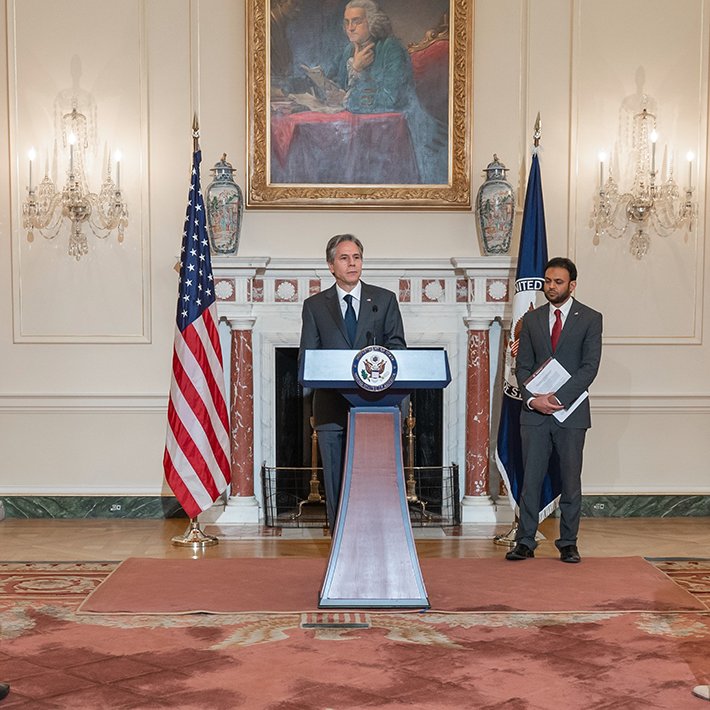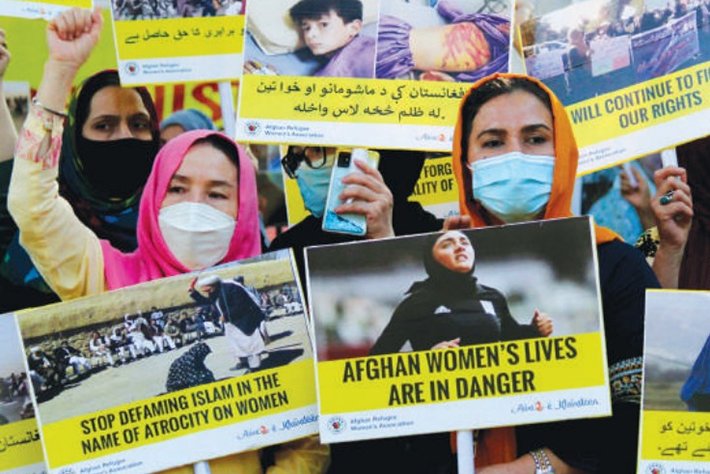When U.S. Secretary of State Antony Blinken announced this year’s annual report on international religious freedom June 2, his mild-mannered demeanor was in stark contrast to the content of his speech that presented the grim state of this vital human right in nearly 200 nations.

Following are some of the key points Secretary Blinken made in his speech, delivered in the Benjamin Franklin Room of the U.S. State Department.
“We know that when the fundamental right of each person to practice their faith or to choose not to observe a faith is respected, people can make their fullest contributions to their community’s successes; entire societies are better off.
“On the other hand, when governments deny this right, it ignites tension, it sows division, it often leads to instability and conflict.”
“In many parts of the world, governments are failing to respect their citizens’ basic rights. Some governments continue to use blasphemy and apostasy laws, which banned defamation and renunciation of religion, to police the language of religious minorities.”
He covered Burma’s 2017 Muslim Rohingya genocide and Eritrea permitting only four religious groups to practice their faith and arresting members of minority religions and forcing them to renounce their faith as a precondition for their release.
“In Saudi Arabia, we recognize the important recent moves to increase interfaith dialogue and religious tolerance,” he said. “However, publicly practicing any faith other than Islam remains illegal, and the government continues to discriminate against members of religious minority communities.”
He particularly targeted China and Afghanistan.
“China continues its genocide and repression of predominately Muslim Uyghurs and other religious minority groups,” he said. Since April 2017, more than 1 million Uyghurs, ethnic Kazakhs, Kyrgyz and others have “been detained in internment camps in Xinjiang. The PRC continues to harass adherents of other religions that it deems out of line with Chinese Community Party doctrine, including by destroying Buddhist, Christian, Islamic, and Taoist houses of worship and by erecting barriers to employment and housing for Christians, Muslims, Tibetan Buddhists, and Falun Gong practitioners.”
And of Afghanistan, he deplored the dramatic deterioration of religious freedom under the Taliban, “particularly as they crack down on the basic rights of women and girls to get an education, to work, to engage in society, often under the banner of religion. Meanwhile, ISIS-K is conducting increasingly violent attacks against religious minorities, particularly Shia Hazaras.”
He also specifically took up Pakistan, where “at least 16 individuals accused of blasphemy were sentenced to death by Pakistani courts in 2021, though none of these sentences has yet to be carried out.”
And he called out religious freedom violations in India, Vietnam, and Nigeria.
“At its core, our work is about ensuring that all people have the freedom to pursue the spiritual tradition that most adds meaning to their time on Earth,” he concluded. “It’s about giving people the chance to express themselves freely, which is part of being their fullest selves. That’s the progress. That’s the progress that this report hopes to help create.”
U.S. Ambassador-at-Large for International Religious Freedom Rashad Hussain took up this year’s 2,000-plus page Report on International Religious Freedom and laid out its three key themes:
“First, too many governments use discriminatory laws and policies and abuse their own people. We have seen two genocides of religious minority communities in recent years ‑—in China and in Burma.
“Second, rising societal intolerance and hatred are fueling violence and conflict around the world. Governments must not sit silent or stand idly by in the face of such oppression.
“Third, powerful collaboration among civil society, governments, and multilateral partners has led to some progress and provides hope in addressing these complex challenges.”
“Our greatest hope is that together we can unite our efforts to ensure respect for freedom of religion or belief for all people around the globe,” said Hussain, “and we continue to stand in solidarity with all people seeking to exercise their beliefs.”
_______________
From its beginnings, the Church of Scientology has recognized that freedom of religion is a fundamental human right. In a world where conflicts are often traceable to intolerance of others’ religious beliefs and practices, the Church has, for more than 50 years, made the preservation of religious liberty an overriding concern.
The Church publishes this blog to help create a better understanding of the freedom of religion and belief and provide news on religious freedom and issues affecting this freedom around the world.
The Founder of the Scientology religion is L. Ron Hubbard and Mr. David Miscavige is the religion’s ecclesiastical leader.
For more information visit the Scientology website or Scientology Network.


